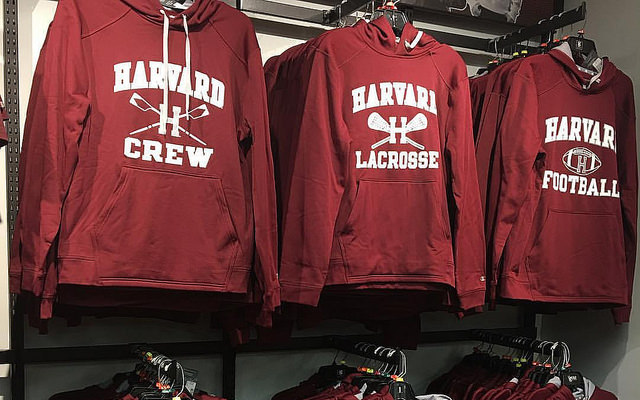As a black man, getting dressed is an exercise in personal psychological warfare. I am constantly aware that the clothes that I wear mute or amplify the stereotypes that exist. Because of these biases, people anxiously cross the street at the sight of my impending presence, and elevators are quickly vacated when I enter. These regular incidents, combined with recent videos of police violence, remind me that the history of American racial myths dictate that my skin signifies not just sloth, but also danger.
But with my Harvard t-shirt on, things change. The fear in the eyes of onlookers disappears as their eyes track from my face to the crimson letters on my shirt. Some even smile. For others, it gives them pause as they try to discern if I actually am a student or a fraud.
That pause is everything. It slows the police officer from reaching into his holster in fear. In that moment, the store owner reconsiders if I am attempting theft and decides to give me the benefit of the doubt. Within the hesitation, stereotypes and biases feel unsure. In that pause, I become human.
And the effects of my elite attire are not just external. I feel more confident walking in unfamiliar places because I have a signal that I am not only smart, but I am also harmless. This feeling is so profound that, without my exclusive uniform, I feel unprotected from the beliefs of others.
For some, clothing is meaningless. Their racial bias is so powerful that nothing will convince them to see me as human. But for others, clothing seems to make the difference. It is why, in the wake of Trayvon Martin’s murder, Geraldo Rivera and Mark Cuban wondered aloud if black men should stop wearing hoodies. Therefore, why not pass out Harvard t-shirts to every young black man in exchange for his hoodie? Would that not work?
No — because clothing is not what matters. What truly makes a difference is being different. The reason wearing a Harvard t-shirt works is because it is uncommon. Therefore, by donning my crimson and white apparel, I signify that I am a rare breed, different from others and therefore, I deserve better treatment. But this is troubling, because the differential treatment that I receive is not a higher paycheck or prestige, it is humanity.
From the constitutional compromise that determined black life was only worth 60% of others, America has yet to be skilled at recognizing black humanity. The emergence of the Black Lives Matter movement shows that black life is still undervalued. While an ever decreasing population continues to express their prejudice through racial beliefs, a much larger populous feels justified in their derogatory treatment based on the American dream.
The American dream envisions a society where the only limits on opportunity are internal. This national myth of a meritocracy is especially damaging when applied to the African American community where many are not limited by the absence of desire or will, but by the absence of affordable healthcare, quality schools, and local economic growth. But the fairytale of unlimited opportunity woven into the red, white and blue fabric of our society reinterprets structural limits as character flaws. Consequently, the general population feels justified in treating African Americans as sub-human and only distributing humanity to the “deserving” few.
And that is what my Harvard t-shirt signifies. It demonstrates merit which earns more humane treatment. Society follows suit. The mass media differentially distributes outrage to victims of injustice based on their assessment of the victim’s character. President Reagan utilized the discredited “welfare queen” myth to defund poverty alleviation programs under the guise of helping only the deserving. Even some African Americans buy into this fable and believe that their success is only due to their character. They give speeches and write books admonishing other African Americans to dress better and think bigger as if clothes and thoughts are the only limits to black success. But as one fortunate enough to achieve some of the trappings of the American dream, this message of earned humanity makes me sick.
Humanity should not be a resource that society rations out only to those who score highly on a test rigged against their community. A spotless record should not be the key that unlocks outrage at injustice. Society should not reward me with the ability to walk freely down the street just because I was fortunate enough to be one of the few to have the support, education and experience to attain a marker of success. My Harvard t-shirt should be a symbol of pride rather than a suit of armor. The breath in my body should be enough to grant me humanity.


